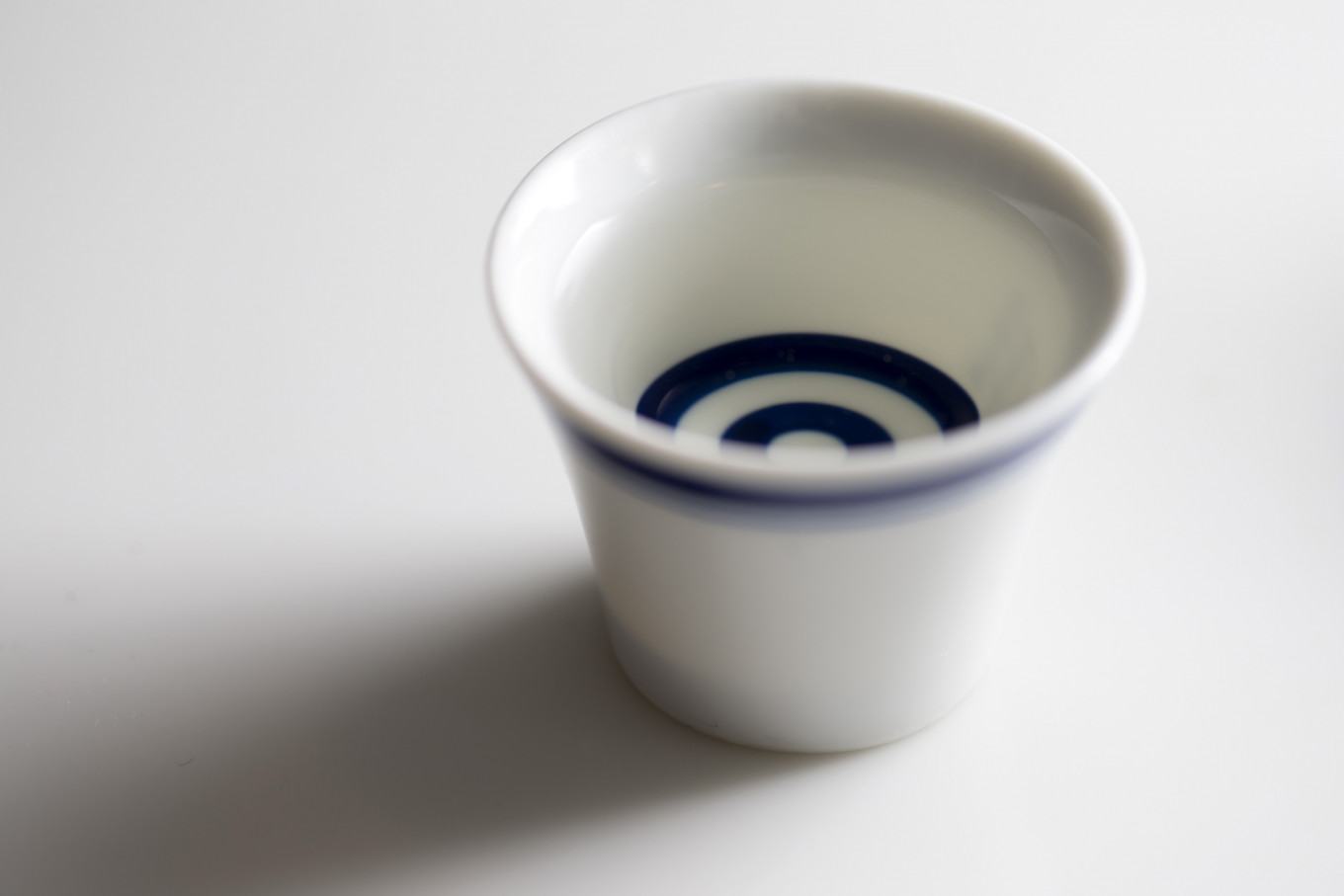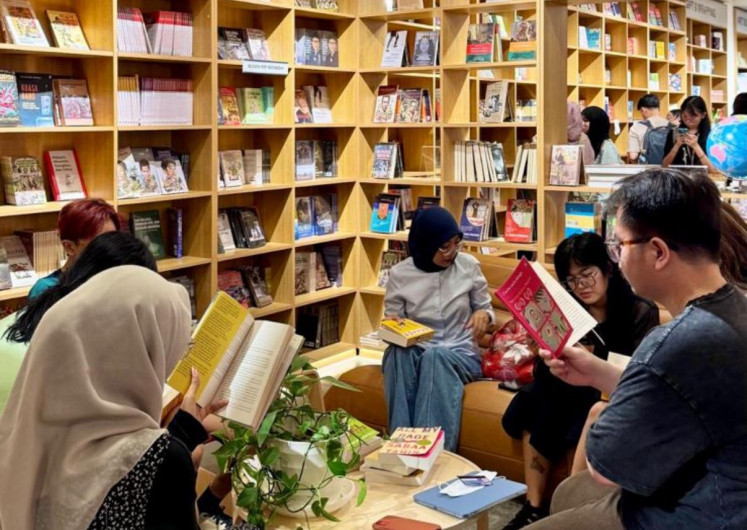Popular Reads
Top Results
Can't find what you're looking for?
View all search resultsPopular Reads
Top Results
Can't find what you're looking for?
View all search resultsEx-Wall Streeter finds a niche taking sake beyond sushi counter
Change text size
Gift Premium Articles
to Anyone
W
hen Yumiko Munekyo was a vice president at Nomura Holdings Inc. in 2011, she would take clients to upscale sushi spots around Manhattan. They’d invariably order junmai daiginjo, the highest grade of sake and also usually the priciest, but not always the most interesting or appropriate.
Munekyo knew better, having grown up in Japan’s Hokuriku region, a hub for artisanal sake, or jizake. New York’s top Japanese restaurants almost never stocked them. “They were mainly serving daiginjo, which is made from highly polished rice so it’s elegant and floral, good with some fish but not with meat,” she says. “I wanted different sakes that people could pair with food, like wine.”
In 2013 she and her husband, Jason Geiger, an executive director at Nomura, founded Sake Suki, a boutique company that imports smaller labels to the U.S.
So far they’ve had success at the top of New York’s restaurant ladder. Le Bernardin, Manhattan’s vaunted seafood dining room, offers the earthy, full-bodied Manzairaku Junmai Ginjo sake with an appetizer of hamachi tartare with osetra caviar on its tasting menu. “Sake certainly starts the conversation,” says Aldo Sohm, Le Bernardin’s wine director. He prefers it to conventional Champagne and says the sake brings together the disparate tartare and caviar flavors and textures. It retails for about $85 a bottle.
Read also: In a Tokyo neighborhood's last sushi restaurant, a sense of loss
Sake Suki selections have also been embraced by the city’s modern Japanese restaurants. The Michelin-starred Sushi Noz carries the Nishide Shuzo “100 Year Sake,” made with natural yeast from the brewery and recognizable by its elegant hand-painted porcelain bottle. It retails for around $145. “The bottle’s detail and design are exactly in line with the ethos of Sushi Noz,” says co-owner Joshua Foulquier, who admires the importer’s unconventional approach.
But Sake Suki’s aspirations are bigger. The aim, the founders say, is to move sake beyond sushi counters and omakase menus and into the mainstream. Think pizza spots, burger joints, and beyond.
Munekyo started her career as a sales analyst at Goldman Sachs Group Inc. in Tokyo before coming to the U.S., and that training has informed her business. “I traded 30-plus currencies and still trade USDJPY [U.S. dollars to yen] to buy our sake from breweries,” she says. “I check markets and see the event schedule to decide the timing of trades.”
The couple’s initial goal was to bring in sake for themselves. “It was so expensive, we might as well have flown to Japan to pick it up ourselves,” says Geiger. “The most economical way was to bring it in in large quantities.” They got an importers license, rented space in an alcohol-licensed warehouse, and brought over their first shipments in 2016.
Sake Suki’s bottles, imported exclusively by the company, are available in New York, California, and Texas in both wine shops and restaurants. Its expansion plans include Las Vegas, Florida, and Illinois. To make the sake accessible—and to reach customers traumatized by bad hot sake and sake bombs—back labels are written in English and provide information about the brewery as well as serving and tasting notes.
It’s still a push to get sake into glasses in America. Riedel recently introduced the Junmai, its second sake glass, yet neither is currently available in the U.S. “Sake opinion leaders in Paris and London have been most active so far,” observes Wolfgang Angyal, head of Riedel’s Japanese subsidiary.
Yet bigger growth is on the way. From 2017 to 2018, Sake Suki doubled the number of cases sold to 1,200, or about 10,300 liters (2,720 gallons), which is tiny by sake standards. Japan-based Takara Holdings Inc., for instance, produced 8.8 million liters of sake at its U.S. and Chinese plants in 2017. The company’s president, Mutsumi Kimura, is optimistic about the future of sake in the U.S. and beyond. “As sushi restaurants expand, sake sales will grow,” he told Bloomberg last July.
Retired Dom Pérignon winemaker Richard Geoffrey is working on a product with Masuizumi brewery for 2019. And Dassai sake is opening a $30 million brewing company in Hyde Park, N.Y., in partnership with the Culinary Institute of America in early 2020.
Sake Suki is sanguine that this rising tide of sake will raise all boats. And anyway, bulk product isn’t the point—quality is. The company’s market niche is bringing the small, independent producers with unique products to the fore and letting them cultivate a fan base, much as the craft beer movement has made avid beer drinkers out of consumers burned out on Bud Light. “Our selections are small-production, they’re not famous names like Moët Chandon,” says Geiger.
In the meantime, while it’s been a challenge to get into wine bastions like Italian restaurants, more non-Japanese spots are embracing sake. New York Thai restaurant Thaimee Table now carries the Manzairaku Yamahai Junmai. “Sake is just the right combo of sweet and vegetal, like Thai food. Because of its light and fresh taste, it elevates curry dishes,” says chef Hong Thaimee. “It’s the pinot noir of sake,” says Munekyo; at about $32 retail, it’s also accessible. Geiger says its smooth, full-bodied character makes it the perfect pair for pizza and burgers, as well as steak and fried chicken.
The duo is pushing to position sake as part of the cocktail culture as well. Blue Hill at Stone Barns in Tarrytown, N.Y., now mixes an aperitif with a base of tart Kagatsuru Umeshu, a sake flavored with plums, added to sparkling wine and wildflower liqueur, served on the rocks. It’s one small, refreshing step along sake’s American journey.











